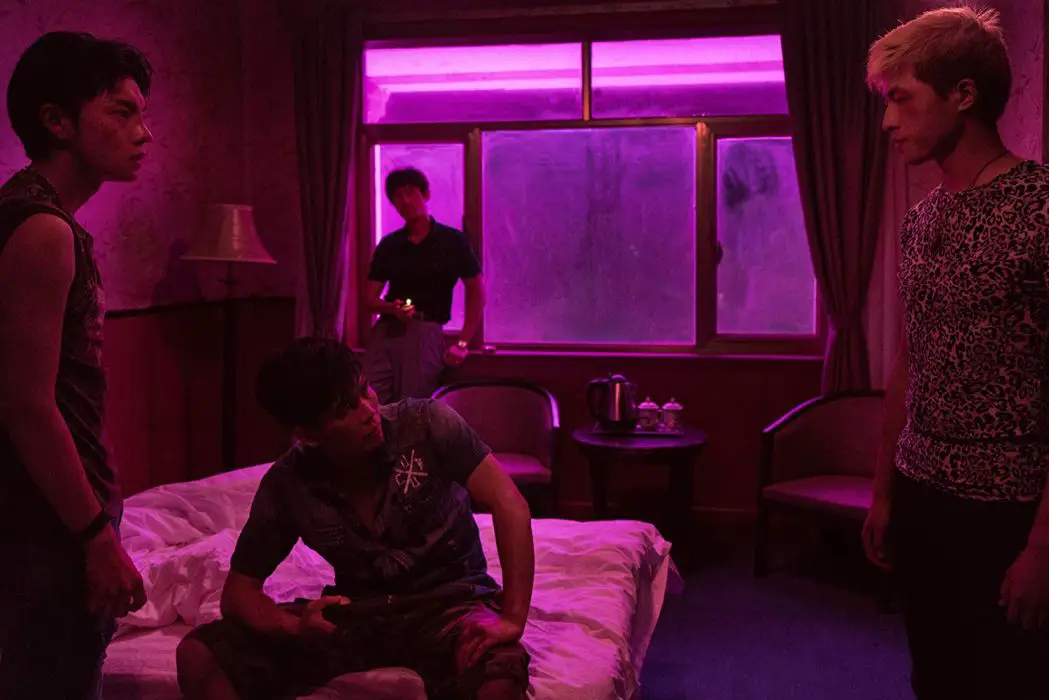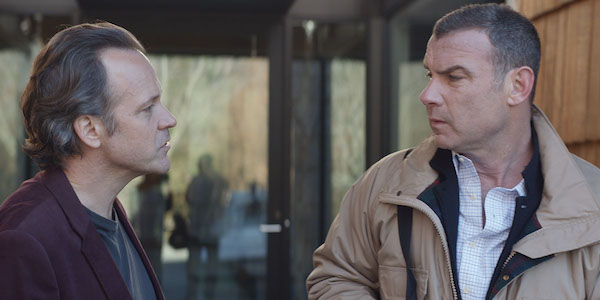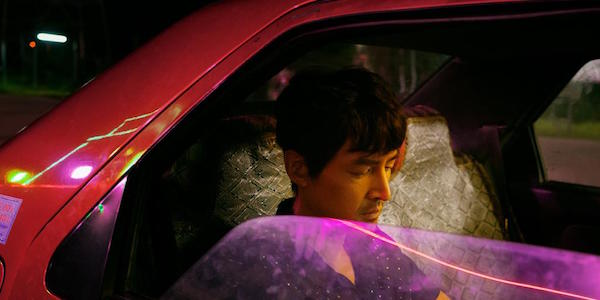TIFF 2019: HUMAN CAPITAL And THE WILD GOOSE LAKE

Full time advertising copywriter, part time Jake Gyllenhaal stan. Always…
My first two days at TIFF 2019 were relatively slow with just two films each day. Waves was the standout of the first two days, delivering an emotional roller coaster, while Human Capital and The Wild Goose Lake each left me hungry for something a bit more meaty and maybe some of the famous poutine I’ve heard so much about.
Human Capital: When a good story gets lost
The very opening scene of Human Capital from director Marc Meyers is an arresting one. A waiter, fresh off of work gets hit by a car as he’s biking home on a dark and winding road. The driver continues on their way and doesn’t stop. For a film I knew nothing about walking in, I bought in quickly.
Unfortunately, Human Capital leaves the mystery behind in its opening moments in favor of a meandering story and, what it thinks is profound, commentary on class in our culture. We go from the accident to meeting the nice, but financially irresponsible Drew (Liev Schreiber) and his daughter Shannon (Maya Hawke). Shannon is dating Jamie (Fred Hechinger) – the son of a wealthy hedge fund couple Quint (Peter Sarsgaard) and Karen (Marisa Tomei). There’s also a troubled teen known for drug dealing named Ian (Alex Wolff) who gets tangled into the mess they all weave.

As you can see, the cast is has a lot of big names. And they all deliver. While Hawke rises the highest, portraying the fullest character, Schreiber shows range with a more vulnerable side I didn’t know he had. Tomei is as strong as ever as Karen, a woman trapped in a marriage to a controlling hedge fund manager. She has little autonomy in her life and finds herself looking to find some. Wolff, best known for Hereditary, isn’t introduced until the third act. He gives a good performance, but his character feels more like a caricature or a plot device.
The biggest thing preventing Human Capital from succeeding is that it takes what should be a simple story – the mystery of who hit the biker – and turns it into a complicated story that avoids the main plot for two acts. Similar to The Handmaiden, each act follows the length of the story from a different perspective revealing different truths. With Human Capital, the revelations just drag out a narrative that would be better told in a more traditional manner. The third act is easily the most interesting, and it would be a stronger film if it focused more on that and less on the extraneous plots that don’t end up adding a whole lot.
Along its path back to the central question, Meyers tries to fit in some deep commentary on class and power, but it’s nothing that hasn’t already been said more effectively before. There’s enough inauthentic dialogue to fill a high school play with lines like “You were making out with some doofus” or “I can’t sleep off being gay.” Each line seems to open up a new thread that ends up being of little consequence to the final outcome.
If it all sounds messy, it’s because it is. While the stacked cast deliver exceptionally strong performances, the messy structure and sloppy screenplay can’t bring a story with plenty of potential to life. What should be a thrilling and dramatic 90 minute film feels like a slow 120 minutes instead.
The Wild Goose Lake: When noir lacks substance
My final screening last night was The Wild Goose Lake from director Diao Yinan. It’s a noir crime drama that tells the story of a motorcycle thief named Zhou (Hu Ge). When he gets into it with other criminals over a claim to the top territory, he ends up mistakenly shooting a cop and ends up on the run from both the cops and his overlords.
The film is brilliant to look at. Some scenes are rich with color while others are dark and ominous. Each scene (and especially the few action scenes) are meticulously crafted. There’s one scene in a zoo where we cut between shots of animals that is truly haunting and felt incredibly fresh. Diao has perfected the noir aesthetic and it’s what keeps you invested despite the films flaws. It also happens to feature one of the more memorable endings to a sex scene in recent memory (no spoilers here).

Both the film’s characters and plot can’t live up the standard Daio sets with the style. The films opens with two long scenes of exposition underneath train tracks and then cuts to flashbacks to tell the story. It cuts off the films’ momentum before it even gets going. Daio forgoes seeding plot twists and relationships earlier on to have them pop out of nowhere, so they don’t land as hard as they could. Similar to Human Capital, you spend too much of the runtime in The Wild Goose Lake waiting. Waiting for things to be explained, for action to pick up, for some deeper meaning. And it never really comes.
The Wild Goose Lake will certainly appeal to some viewers. If you’re looking for a slick noir piece with impeccable choreography throughout, you’ve come to the right place. For viewers like me, who need some meat in motivations, decisions, lessons – the substance and takeaways of a film – you won’t find it here. Daio has mastered the sizzle, but doesn’t have the steak.
Does content like this matter to you?
Become a Member and support film journalism. Unlock access to all of Film Inquiry`s great articles. Join a community of like-minded readers who are passionate about cinema - get access to our private members Network, give back to independent filmmakers, and more.
Full time advertising copywriter, part time Jake Gyllenhaal stan. Always waiting for a new film from Benh Zeitlin.













